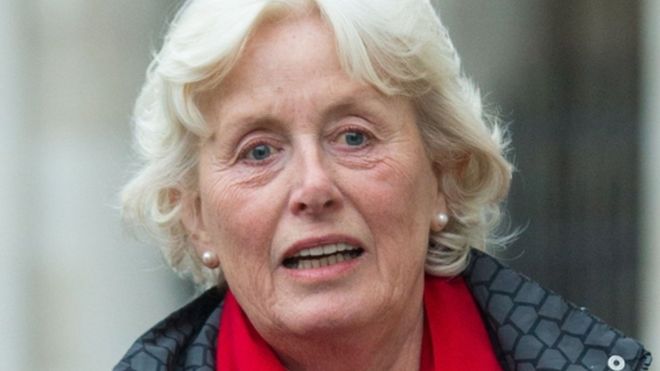Why has the supreme court ruled a woman must stay in a ‘loveless’ marriage?
Tini Owens’s case has boosted support for introduction of ‘no-fault’ divorces

A free daily email with the biggest news stories of the day – and the best features from TheWeek.com
You are now subscribed
Your newsletter sign-up was successful
A woman who wants to divorce her husband of 40 years because she says their marriage is unhappy has lost her case in the supreme court.
In a unanimous ruling, five justices upheld previous rulings by a family court and the court of appeal that Tini Owens must stay married to Hugh Owens.
Under the current law in England and Wales, the only way to obtain a divorce without a spouse’s consent is to live apart for five years, unless an applicant can prove their marriage has broken down due to adultery, unreasonable behaviour or desertion.
The Week
Escape your echo chamber. Get the facts behind the news, plus analysis from multiple perspectives.

Sign up for The Week's Free Newsletters
From our morning news briefing to a weekly Good News Newsletter, get the best of The Week delivered directly to your inbox.
From our morning news briefing to a weekly Good News Newsletter, get the best of The Week delivered directly to your inbox.
Tini Owens, petitioned for divorce in 2015 after moving out, citing 27 allegations about her husband's “unreasonable behaviour” - including that he was “insensitive” in his “manner and tone”, she was “constantly mistrusted” and that the marriage was “loveless”.
But, according to The Guardian, Hugh Owens refuses to agree to a divorce and denies her allegations about his behaviour. He says that if their marriage has irretrievably broken down it is because she had an affair, or because she is “bored”.
A family law judge refused the divorce, saying Tini Owens’s allegations were “of the kind to be expected in marriage”. And the Supreme Court’s decision to uphold that ruling means the pair must remain married until 2020.
‘A very troubling case’
A free daily email with the biggest news stories of the day – and the best features from TheWeek.com
Rarely in the field of Supreme Court judgements “has a ruling been given with such misgivings by so many”, says the BBC’s Clive Coleman.
Lady Hale the court's president called it “a very troubling case”. Lord Wilson and Lord Mance shared “uneasy feelings”.
“Why? Because there is deep disquiet about a divorce law that forces spouses to assign blame in order to get their divorce”, Coleman adds.
Family lawyer Alex Carruthers, partner at Hughes Fowler Carruthers, told Metro: “This is an extremely unfair situation. The judges were constrained by laws made almost 50 years ago which are no longer fit for purpose. The clamour in the legal profession for reform of our arcane divorce laws and the introduction of no-fault divorces is now deafening.”
‘No-fault’ divorce
Specialist lawyers “have long campaigned for the introduction of the ‘no-fault’ divorce and say judges should not compel people to stay married”, says HuffPost.
Ayesha Vardag told the website: “In my view, the law restricting the right to divorce is a fundamental infringement of the rights to private and family life. I would go further and say it is a form of indenture or slavery.”
“This kind of law has no place in a civilised society of equals. It springs from a time when men in England were allowed to beat and rape their wives. We do not allow forced marriage. How can we force continuation of marriage?,” she asks.
But some believe a “no-fault” divorce system would undermine the institution of marriage.
Colin Hart, chairman of the Coalition for Marriage and director of the Christian Institute, told the BBC a “pure no-fault” system would lead to a “race to the bottom”, with quicker divorces that would “trivialise marriage”.
“Society has an interest in trying to keep marriages together and I think no-fault divorce is pushing that in the wrong direction,” he said.